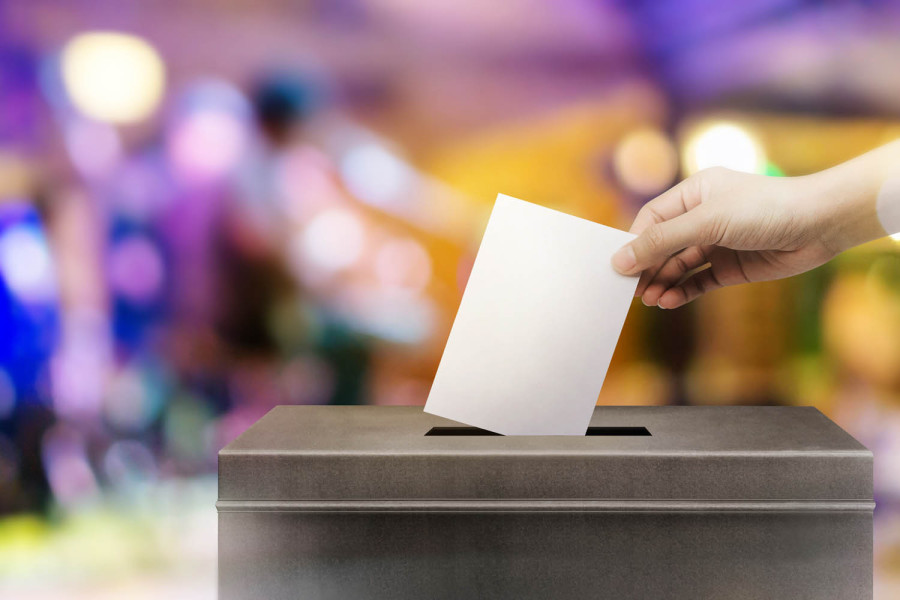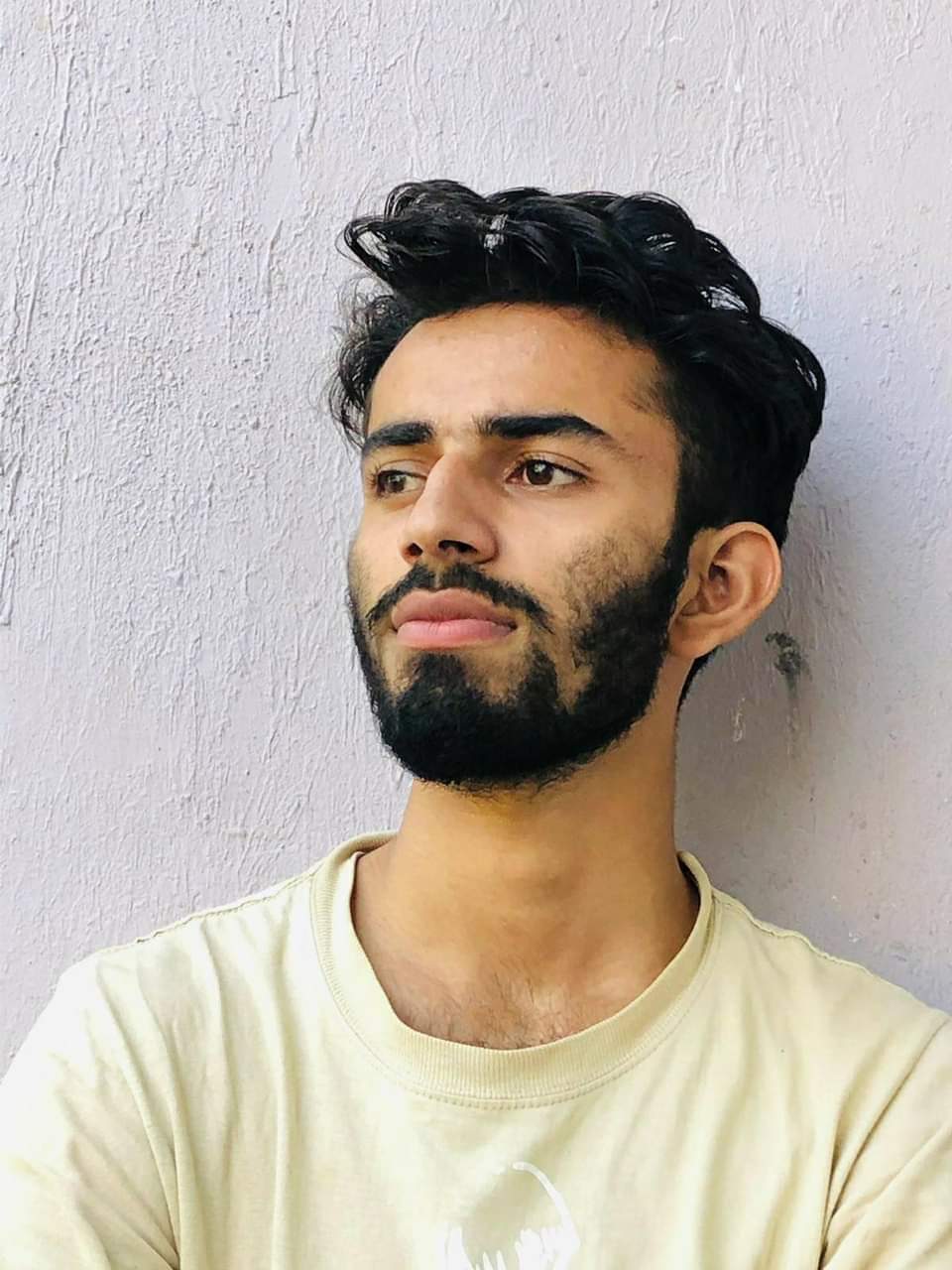Fiction Park
Election fever
As Sakuntala lay on her bed, she found herself reflecting on her life and questioning her purpose.
Sugam Gautam
The general elections were coming up. Some common comments people made when asked about their preferences in the upcoming election were:
“Ah, that young man! He must win. It’s time for youth to take control of politics, so everyone should vote for young people.”
“I’ve been voting for this party for the past 20 years, so I don’t care who is contesting. I’ll vote for my party.”
Political party supporters bribed children to sing the names of their political parties. Everyone recognised that involving children in politics was both morally and legally wrong, but they let the youngsters sing the party slogans since reprimanding them could be interpreted as a protest against such parties. With only seven days remaining until the election, the civilised masses were filled with anticipation that the deserving candidates would emerge victorious and bring about a revolutionary change in the nation’s fate.
The weariness on Mr Pandey’s face revealed the immense effort he had put into the past month, often staying awake all night and making phone calls to fellow party members. The political campaign had also taken a toll on Anup’s health—the skin beneath his eyes had lost its usual radiance, making him appear tired and aged. The only constant was Sakuntala’s irritation. One evening, when Sakuntala mentioned that a close relative had brought a potential match for Anup, Mr Pandey initially paid little attention. However, as she provided more details about the prospective bride’s background, Mr Pandey lost his composure and uttered words that Sakuntala had never heard him say. Within moments, Sakuntala realised that discussing marriage so close to the election was seen as unfit by her husband.
Sakuntala, who was usually preoccupied with her domestic chores, had no knowledge of the election candidates or their promises to the general public. Only after the argument did Sakuntala find out that the girl she had seen as a prospective bride was from her husband’s rival party. The girl was the daughter of a senior politician from the CEA party, which had maintained a stronghold in national politics for a long time. Mr Pandey would never entertain the thought of aligning himself with that politician, let alone establishing a familial relationship with them. The primary threat to the CEA party in the upcoming election was the emergence of the NDOP party on the national political scene. All parties were aware that NDOP had assembled a team of experts from various fields, including some young faces who were seen as the future leaders of the nation.
Sakuntala had never grasped the intricacies of politics, nor did she feel any need to do so. Her daily duties involved scrubbing pots and mopping floors. Even if she had desired to delve into the world of politics and understand its complexities, what practical use could she make of such knowledge?
On the evening when Sakuntala had brought up the idea of Anup marrying the politician’s daughter, her son’s irritation was palpable. “What are you talking about, Mom?” he exclaimed. “You should at least know who our friends and rivals are,” Mr Pandey continued to scold Sakuntala as she retreated to her bedroom.
Inside her dimly lit room, she lay on the bed and berated herself for spoiling the evening with her gibberish idea. Both her son and husband were upset by her words, and she wished she could live in a world where politics didn’t interrupt familial matters. As she lay there, she found herself reflecting on her life and questioning her purpose. Was she destined to be a housewife, serving others while neglecting her own desires?
That evening, one thing became clear to Sakuntala: her life was like a roof, sheltering others while enduring hardships herself. In her childhood, she had never imagined how her life would turn out. While she was not lacking in material comforts, there was a void in her life—a lack of love and affection. Perhaps being loved could have filled the emptiness in her. The Pandey family, especially her husband, seemed to take her for granted, treating her like a servant.
Anup’s mannerisms had changed since he got involved in politics with his father, so Sakuntala was convinced that politics had turned him into a callous person. It was highly likely that Anup would stay in Nepal if his father were to win the elections, as it would open new opportunities for him, and he wanted to be a reputed economist. While he could earn more money in Australia, there was no chance he could wield power there. His involvement with his father’s party had made him realise that power was essential in life, and such power came primarily from politics. The prospect of wielding power enticed Anup to remain in Nepal, but this decision hinged on the election outcome.
In the months leading up to the election, Anup and his father would rise early in the morning, stroll around the neighbourhood, and flip to the middle page where their columns were featured. On election day, Mr Pandey asked Sakuntala to accompany him to the temple before heading to the nearby polling station to cast their votes. It had been years since the couple had visited the temple, situated across from the tea shop, where Mr Pandey discussed his political ideologies and captivated audiences. If anyone were to see them together in this neighbourhood, they would have to double-check to ensure the sight before their eyes was not an illusion.
Regardless of Sakuntala’s disdain for her husband’s political aspirations, she still wished for his victory. Despite his bitterness, she held a special place for him in her heart. She understood that women worldwide played a pivotal role in their husband’s success. But did the men truly appreciate their effort?
The heat was so intolerable that people wouldn’t have ventured out of their homes if it hadn’t been for election day—as each vote matters. Raghu, a member of the NDOP party, made his rounds at the city’s polling station, and he didn't appear pleased with the conversations he overheard while weaving through the crowd. He caught people mentioning the names of other parties when asked about their voting choices. Amid the crowd, he could only spot supporters of other parties. It made Raghu realise that their promotional campaign hadn’t been effective enough to receive as many votes as they had hoped for.
The day after the election, people gathered in chautaris and tea shops to speculate about the outcome. NDOP, being a newly emerged party, seemed to be the least favourite considering the atmosphere of the previous day. Mr Pandey, who had stayed home all day following the election, also came to the conclusion that he and his party were heading for a dismal defeat. He might have to wait another five years before he could step into the parliament.
The results were out, and his party could only secure the sixth position in the election race. Mr Pandey’s vote difference, compared to his opponents, indicated that his preparation had fallen short. Anup was disheartened more than anyone else. He had believed their preparations were sufficient and that the public would place their trust in them. However, his dream of staying in Nepal and getting involved in politics remained unfulfilled.
The defeat wouldn’t affect Sakuntala as deeply, but she worried that her husband’s frustration might widen the gap in their relationship. Now, Mr Pandey would continue to write columns for the newspaper, delivering patriotic speeches in the mornings as he sipped tea at the tea shop across Krishna Mandir. Sakuntala would be home alone, awaiting her husband, who no longer showed interest in her. On the video call, she would persist, urging Anup to find a suitable marriage match, and he would consistently change the subject. When Anup returned to Nepal after five years, Mr Pandey’s ambitions would soar once more with the hope that this time, victory would be within their grasp.
This is a continuation of Gautam’s stories ‘For the Love of Politics’ and ‘Politics above Family’ published earlier in the Post.




 9.91°C Kathmandu
9.91°C Kathmandu










